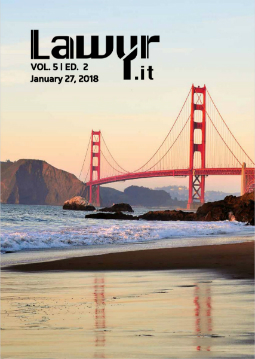Qualified law is a special category of statutes with clear constitutional background, which covers certain domains of crucial subject matters, and which is adopted with stricter procedural rules, than the ordinary legislative process (Camby, 1998). This article will compare two forms of qualified majority requirement, and will argue against the introduction of two-thirds majority. For this purpose, I compare three national solutions: the French, the Spanish and the Hungarian experience.
All relevant models of qualified law contain a qualified majority component: these laws should be passed by a two-thirds majority, or at least by absolute majority, which is the support of the majority of all deputies. In case of stable support behind the government, the absolute majority would not radically modify the separation of powers between the government and the opposition. Thus, the governments’ will can prevail regardless of the disagreement of the opposition. The role of the absolute majority, as well as an additional vote at the end of the process (Conseil Constitutionnel, Decision no. 2007-559 DC, December 6, 2007) is to provide a further check on the power of the majority: qualified statutes should not be promulgated without the wide support of the deputies. These requirements have multiple functions. With the help of a heightened level of minimum support, the stability of certain circles of law could be increased. Apart from this, since most of the democratic governments are coalitional, smaller groups in the government side could play a decisive role, since their consent is needed for absolute majority. This is a crucial safeguard of pluralism. To set an example, some smaller fractions benefited from this situation regularly in France during the 1980s (Avril, 2010).
However, within this model, non-political actors play stronger role in the control of the qualified legislation, than the parliamentary opposition. Qualified law is not a crucial instrument within the hands of the opposition, because these parties mostly use the traditional methods of parliamentary obstruction (Arlettaz and Bonet, 2012). This statement is also valid for second chambers (Avril, 2014). As a further consequence, minority governments are almost eliminated from countries that follow an absolute majority model.
The French and Spanish models show that absolute majority does not tend to be the sole special requirement in the field of qualified law. However, the Spanish model does not operate with a wide circle of guarantees; organic laws differ from their ordinary counterparts only by an additional round of vote, and by the prescription of absolute majority. By contrast, in France, this concept has been completed with further elements, such as a prior mandatory control of constitutionality, additional procedural safeguards, and bicameral consent. For example, the French Senate is entitled to block the legislation of the first chamber in such matters, which are related directly to the Senate (Conseil Constitutionnel, Decision no. 85-195, DC, July 10, 1985). This competence was founded as a compromise, after expanding the right to vote to EU citizens in local elections. In light of the traditional oppositional attitude of the French Senate, this is not only a mere theoretical consideration (Ardant and Mathieu, 2014). Another special case is the cohabitation, when the majorities of the two chambers are different (Avril and Le Pourhiet, 2008).
To continue with the stricter form of qualified majority, from a separation of powers perspective, the two-third majority (l\e.g. in Hungary, Article T of the Fundamental law of Hungary), raises a number of issues. This framework would prevent the government from amending qualified laws unilaterally, unless it has a two-third majority. A government in a simple majority position would be forced to negotiate, or at least cooperate with the opposition to make compromises. The rules from the status of the members of the Parliament had not been amended for twenty years, due to lack of required consensus (Antal, 2011).
This means that the opposition has a direct impact on the regulation of some basic matters, such as the electoral system or the institutional framework of the state, and the legislator does not overlap with the government. As a result on the one hand, the minority interests should be respected at least within the scope of qualified law (Kilényi, 1994). This approach is in conformity with the current interpretation of democratic representation, as Avril and Le Pourhiet (2008) notice and was also a relevant consideration for the amendment of the French Constitution in 2008 (The Committee of Reflection and proposals for the modernization and the rebalancing of institutions of the V. Republic, a more democratic
V. Republic, 2008, p. 209). On the other hand, when there is a lack of political culture and willingness to cooperate, the opposition could abuse its rights, and it could block all attempts of the government to amend qualified law. What is more, in the field of ordinary law, the government is responsible for the passed laws; still, a qualified law is also supported by oppositional deputies, therefore the responsibility for the text is not very clear, and the basic logic of the parliamentary system breached.
When a government has two-third majority, the supermajority requirement would exclude the opposition from all opportunities to influence the decisions and it would be extremely hard to repeal or modify these qualified laws later, on the basis of the two-thirds requirement. Furthermore, the two-thirds requirement would not only play a significant role in the current model of separation of powers, but would also affect the margin of movement of the actors in the future (Szentgali-Toth, 2014). The stricter form of qualified majority would also highlight the role of direct democracy regarding qualified laws, since not only ordinary, but also qualified laws are available for referendum (Németh, 2015).
To sum up, the two-thirds majority within the concept of qualified law could easily distort the relations between the government and the opposition, it would either give the opposition too much power, or it would almost eliminate it from the political process for the long term. From this perspective, the absolute majority model with additional checks is more compatible with the traditional understanding of separation of powers, while the two-thirds requirement is more risky. Usually, it does not serve real consensus-making, but requires unwanted compromises from the political parties, which generates inconsistent solutions. Accordingly, two-thirds majority should be re-evaluated.






